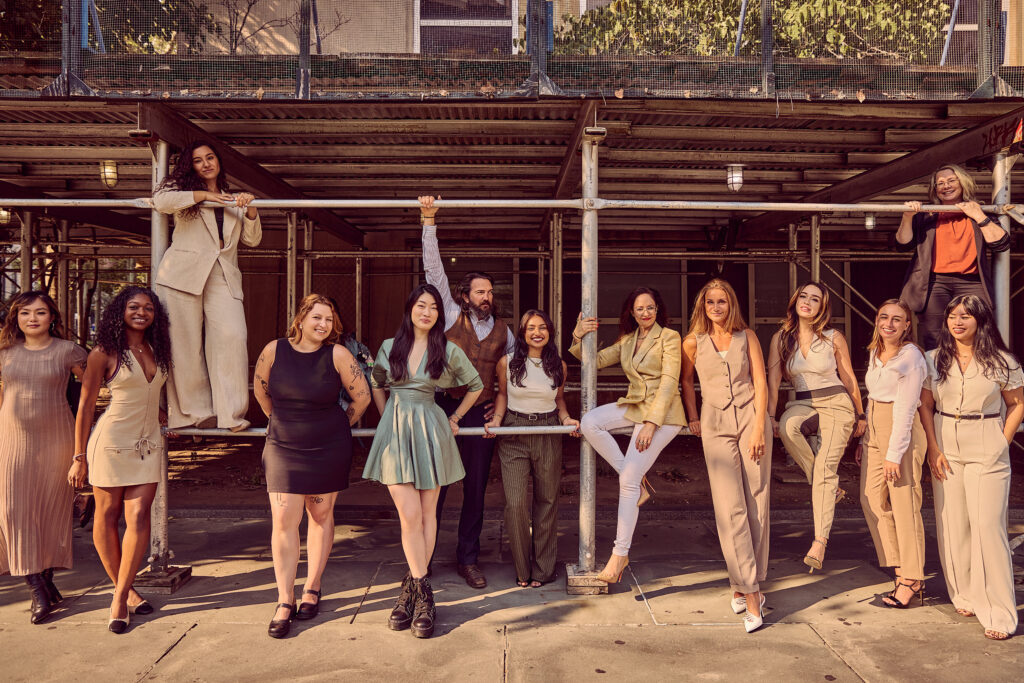In August 2015, Carrie spoke to Zerlina Maxwell at HuffPost Live about what justice for sex crime victims looks like. Also joining were Danielle Bostick and Elona Washington, two inspiring survivors of childhood sexual assault and experts. 
The topic was Jared Fogle, former spokesman for Subway, pleading guilty to charges of sex crimes. He was charged with knowingly distributing and receiving child pornography and conspiring to distribute it (count 1) and traveling to engage in illicit sexual conduct with a minor (count 2). Fogle was caught pornography depicting children as young as six years old being sexually abused. He raped teen age sex trafficked victims and solicited more teen sex partners — as young as 14 — from them. He conspired with an employee to use hidden cameras to film teens engaging in sexually illicit acts in that employee’s home.
Like Bill Cosby and Jerry Sandusky, Fogle used his celebrity, affluence, nice guy persona, and access to sexually exploit innocent people. Fogle faced 50 years in prison, but negotiated a plea deal which recommends a sentence between 5-12 years. (Criminal complaint is here) Getting attention is the fact that the plea involves him paying restitution to the tune of $1.4m which will be split evenly between the 14 victims. But even $100k per victim is not enough. Not even close. This amount, though, does not preclude victims from holding Mr. Fogle liable in civil court. A guilty plea makes a civil case pretty straightforward. Most victims never receive restitution from the offender because most offenders do not have money. When assets are present, though, we need to remove stigma from victims brave enough to seek them.
Criminal courts are about punishing the offender. The victim’s role is really that of witness. They are not a party with any true control over the outcome. In civil court, however, the victim is in the driver seat.
Zerlina notes that sexual assault victims risk being regarded as “opportunists” if they sue. This attitude (not one that I attribute to Zerlina) is maddening. We don’t judge victims of car crashes or physical assault for suing and seeking money for their injuries. We come to expect victims who slip on a city sidewalk, get bad medical care, or spill hot coffee on themselves at McDonalds to fill our courts. With sexual assault cases — especially childhood sexual assault — we are dealing with far more pernicious and intentional acts by the defendant. So, anybody who calls a victim-plaintiff “an opportunist” is basically supporting a society without a civil court system. That attitude is just another way we mistreat victims of sex crimes. Suing for money damages in civil court is our society’s only real method for restoring injured people. It won’t undue the trauma for them. Money is hardly adequate compensation, but a financial reward could at least make life a little more comfortable.
When I speak to potential clients on the phone for the first time, it is typical for them to begin by assuring me that they are “not seeking money” and “not trying to get rich” and that they “just want justice.” I reply, “If you are not seeking money, I am not the lawyer for you, because I sue for money.”
Granted, I often sue for other things like injunctions and orders of protections. But usually if it is a sexual assault that already happened and the victim is not in imminent danger of this same person doing it again, let’s get real. The goal is money. Sure, the goal can also be justice and vindication, but those things don’t pay the bills; and lengthy civil cases can be frustrating and grueling. A civil case is far more likely to yield money than justice and vindication.
Being a victim is expensive life-altering, and miserable. The therapy, the substance abuse treatment (Studies have shown that victims of sexual assault are 26 x more times more like to have problems related to substance abuse. And substance abuse problem makes individuals more like to get sexually assaulted. So, victims of one sexual assault are at high risk of experiencing multiple sexual traumas.), the strained relationships, eating disorders, depression meds, PTSD, education disruptions, lost work, and that’s not to mention the intangible value of the violation itself.
Lengthy prison sentences, sex offender registries, cognitive behavioral therapy, supervised parole, those are all things we do to punish the offender. Besides money, though, what other tools do we really have to improve life for the victim?



